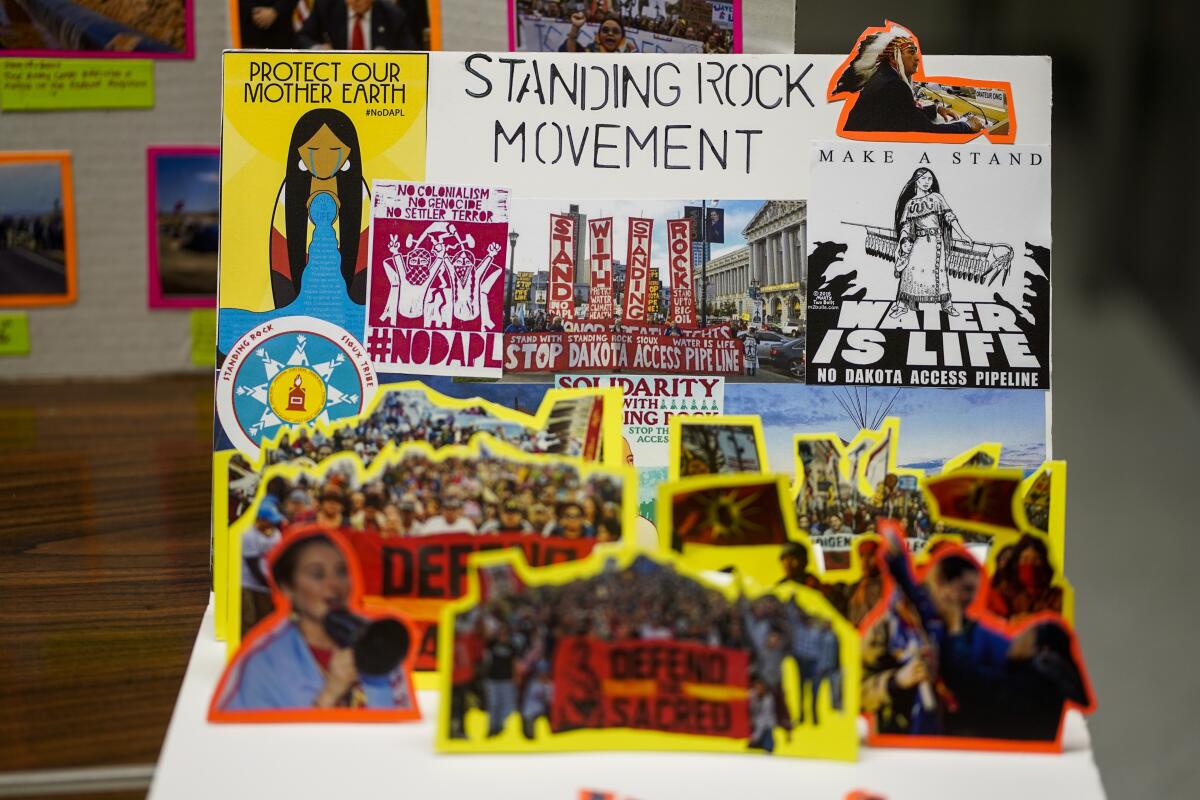Will changes to California’s ethnic studies curriculum weaken it? That’s what some activists and educators say

- Share via
A broad coalition of educators and student groups is defending California’s draft ethnic studies curriculum and expressed concern that substantial revisions could weaken the integrity of the academic discipline.
State education leaders said last week that the draft curriculum “falls short and needs to be substantially redesigned” amid calls for revisions by ethnic organizations, including groups representing Jews, Armenians, Greeks, Hindus and Koreans. They want the draft to be changed to cover the experiences of other ethnic communities that also suffered bigotry.
For the record:
3:47 p.m. Aug. 21, 2019A previous version of this article attributed a statement to R. Tolteka Cuauhtin. The statement was issued by the coalition Save California Ethnic Studies, which supports the curriculum. Cuauhtin is a member of the group.
“Ethnic studies is especially important to black, brown, indigenous and Asian students because our histories and experiences are severely minimized or erased altogether in the mainstream curriculum,” Thandiwe Abdullah, co-president of the Black Student Union at LACES High School, said in a statement. “By going beyond our four groups, the impact of the curriculum is diluted, in order to reemphasize things that have already been covered in classes like World History.”
Some of the criticism of the proposed curriculum has stemmed from a misunderstanding of what ethnic studies actually is, according to a letter sent to the California Department of Education by the Cal State University Council on Ethnic Studies, which represents such departments across the university’s 23 campuses.
Ethnic studies intentionally centers on “people of color, African American/black, Asian American, Latino/Raza and Native/Indigenous Americans to ensure” that their experiences and perspectives, among other issues, are the focal point of learning, the letter said.
“In attempting to make any edits or revisions, we implore the state department of education to uphold the integrity of ethnic studies by not allowing the scrapping” of the draft, said Theresa Montaño, professor of Chicana/o Studies at Cal State Northridge.
California lawmakers are poised to make ethnic studies a graduation requirement in high schools and at Cal State universities.
Other groups that have signed on in support of the draft curriculum include Black Lives Matter California, the League of United Latin American Citizens California, the Northern California Foco of the National Association for Chicana and Chicano Studies and Jewish Voice for Peace - Bay Area, according to a statement by the coalition, Save California Ethnic Studies.
The curriculum is being developed under intense scrutiny as state lawmakers are poised to make ethnic studies a graduation requirement in high schools, and are also debating a bill that would make it mandatory at state-run universities.
Critics have said the current draft is too narrowly drawn. For example, it excludes the word “anti-Semitism” from the glossary, which Sen. Ben Allen (D-Santa Monica) called “an extraordinary omission.”
Tony Thurmond, the state superintendent of public instruction, said at a news conference that the commission writing the curriculum should revise it to better reflect the Jewish experience in America, including teachings about anti-Semitism.
Ethnic studies has its own academic language from hxstory to cisheteropatriarchy.
State Board of Education President Linda Darling-Hammond, Vice President Ilene Straus and Board Member Feliza Ortiz-Licon said last week in a statement that the draft did not meet the goals to be “accurate, free of bias, appropriate for all learners in our diverse state, and align with Gov. Newsom’s vision of a California for all.”
The Department of Education is currently compiling comments and recommending edits to the draft. The board is scheduled to approve a final version by March.
“Ethnic studies is about interrupting racism in America,” Montaño said. “The real question is, can California come together to demonstrate to the entire world that a diverse community can unite to make this possible?”
More to Read
Sign up for Essential California
The most important California stories and recommendations in your inbox every morning.
You may occasionally receive promotional content from the Los Angeles Times.













